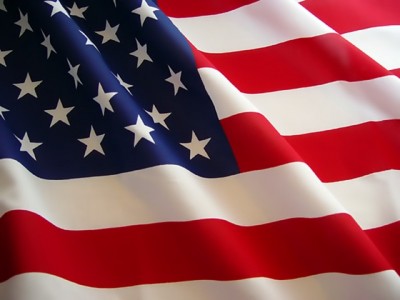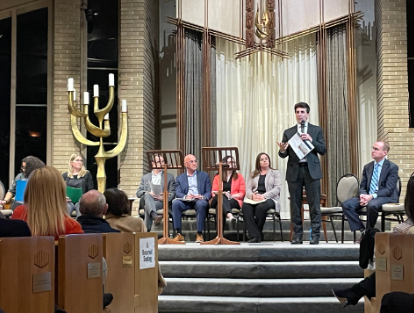Constance Chien ’10
Features Editor

An unspoken obligation of sorts, the Pledge of Allegiance is perhaps the strongest assertion of American patriotism that any student may encounter in an average school day.
And yet, a recent Inklings poll found that many students do not in fact stand for the Pledge.
Tanling Tsao ’10, who is not an American citizen, does not stand for the Pledge. She said that she sometimes feels uncomfortable when all the other students stand up and notice.
“When the teacher calls them to stand up, [other students] will look at me,” Tsao said.
However, she said that teachers understand her sitting down during the Pledge.
“They know I don’t have to if I don’t want to,” she said.
Others do not stand simply because they do not see the rationale behind it.
“I don’t see the point—saying a few sentences over and over everyday doesn’t prove that you’re patriotic, and not saying it doesn’t mean you’re not,” Rebecca Nissim ’10 said. “You don’t say it on the weekends or over vacation, and no one questions it then. What’s the difference when you’re in school?”
However arbitrary some students may feel standing for the Pledge is, some stand just because they always have.
Jordan Glick ’11 stands for the Pledge out of habit.
“I’ve done it my whole life—it’s second nature,” Glick said. “I recite it under my breath. “
However, various teachers believe that there truly is value in reciting the Pledge daily and that it has an important purpose in the school day.
“The pledge is kind of what unifies American citizens throughout the world,” French teacher Olivier Blanchardon said. “It’s a way of illustrating e pluribus unum,” he continued, referencing the Latin motto of the United States, which means “out of many, one.”
Blanchardon stands for the Pledge daily, but he does not recite it, nor does he place his hand over his heart.
“It was not part of my tradition,” he said. “In Europe they don’t do it.”
Blanchardon believes that due to the fact that the United States is relatively new and diverse, it lacks a centuries–old tradition and shared culture that other countries, such as those in Europe, have.
Saying the Pledge is a way in which to remind citizens that no matter how different they are all to each other and from how many varied traditions they may come, they are all still Americans at the core.
However, he respects students’ rights to stand or sit during the Pledge.
“It’s their culture and they have to respect it. If they prefer to sit in their seats quietly, I will also respect it,” he said.
Science teacher David Rollison also believes in the value of standing for the pledge.
Rollison attributes his daily observations of the Pledge to be “mainly out of habit,” as he attended a maritime academy in which the Pledge was observed in silence.
“I do ask my students to stand,” he said. “I do not require it.”
Even though he asks his students to stand, Rollison believes that everyone “has their own right” and that people have different manners in which to show their appreciation for the country.
School librarian Chris Garrity, however, strongly believes that everyone should stand for the Pledge.
Garrity stands for the Pledge daily, and she believes that it is “ingrained” in her.
“I had to stand and say the Pledge, and then we had to sing a song,” she said of her grade school years.
Garrity believes it is a matter of showing respect and appreciation to the country. She believes that students should feel fortunate that they live in this country, and that the Pledge is one way in which to display their respect for it.
“A lot of us don’t know what it’s like to not have the freedoms that we have,” she said. “So I don’t really think we should take it for granted.”













































